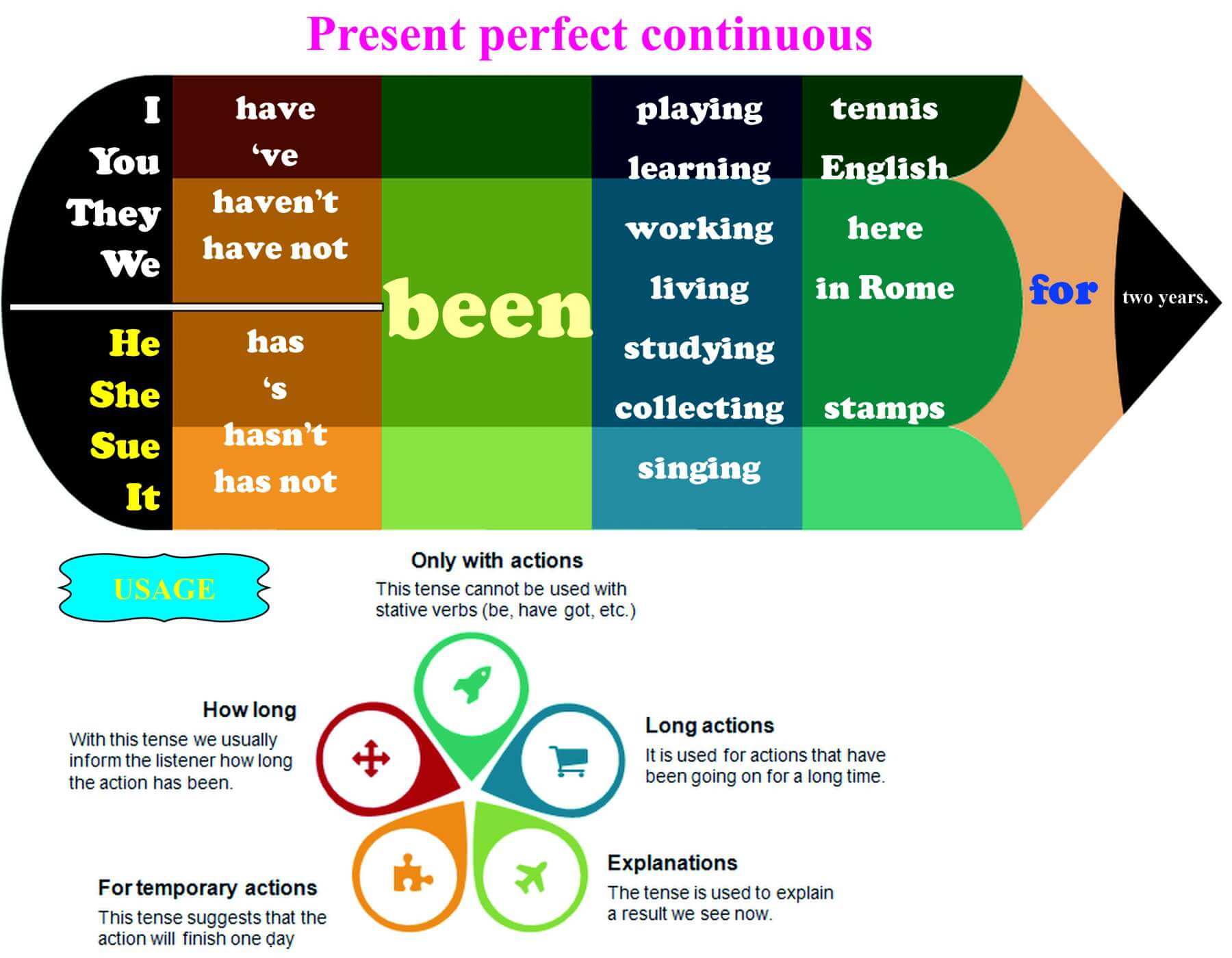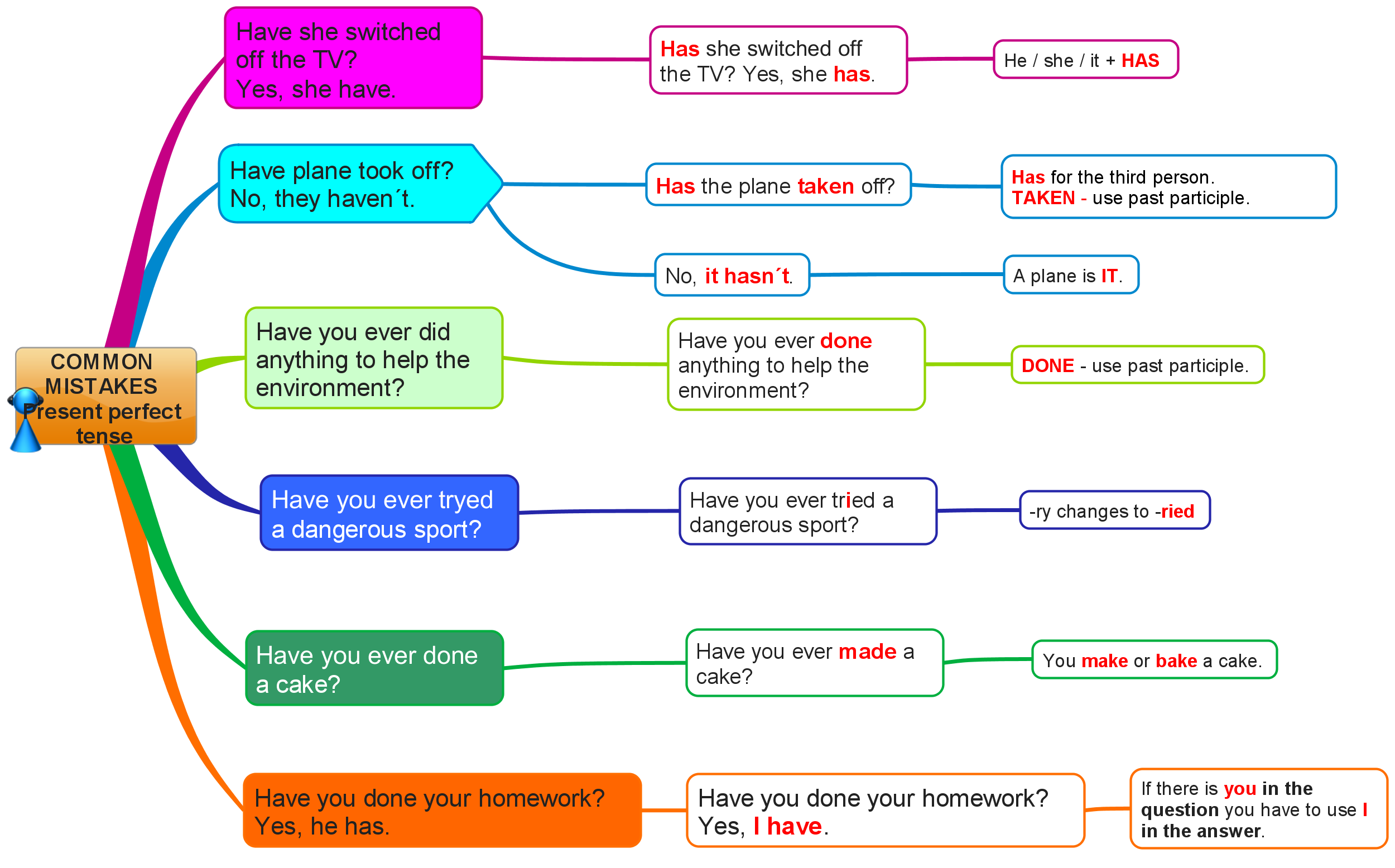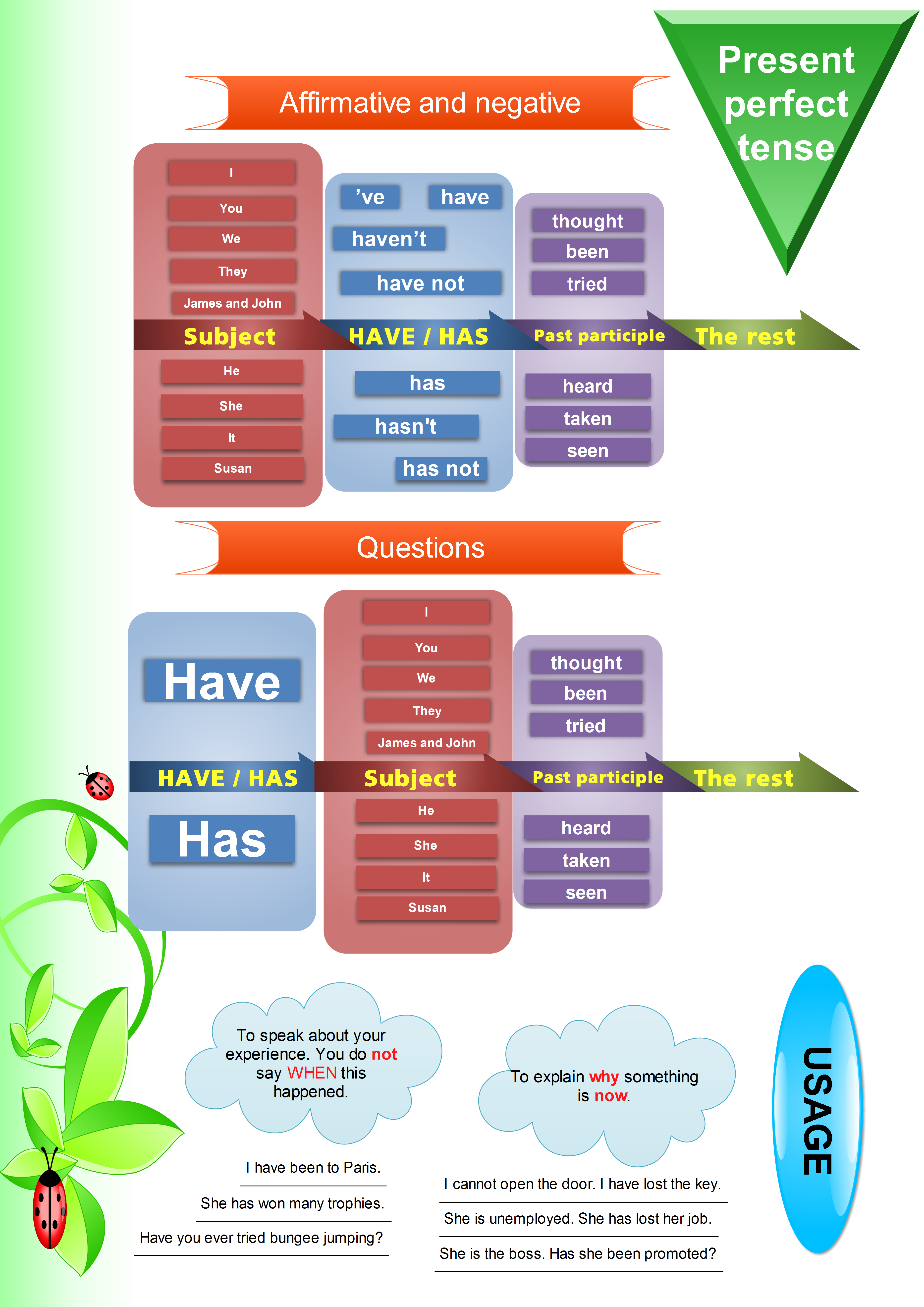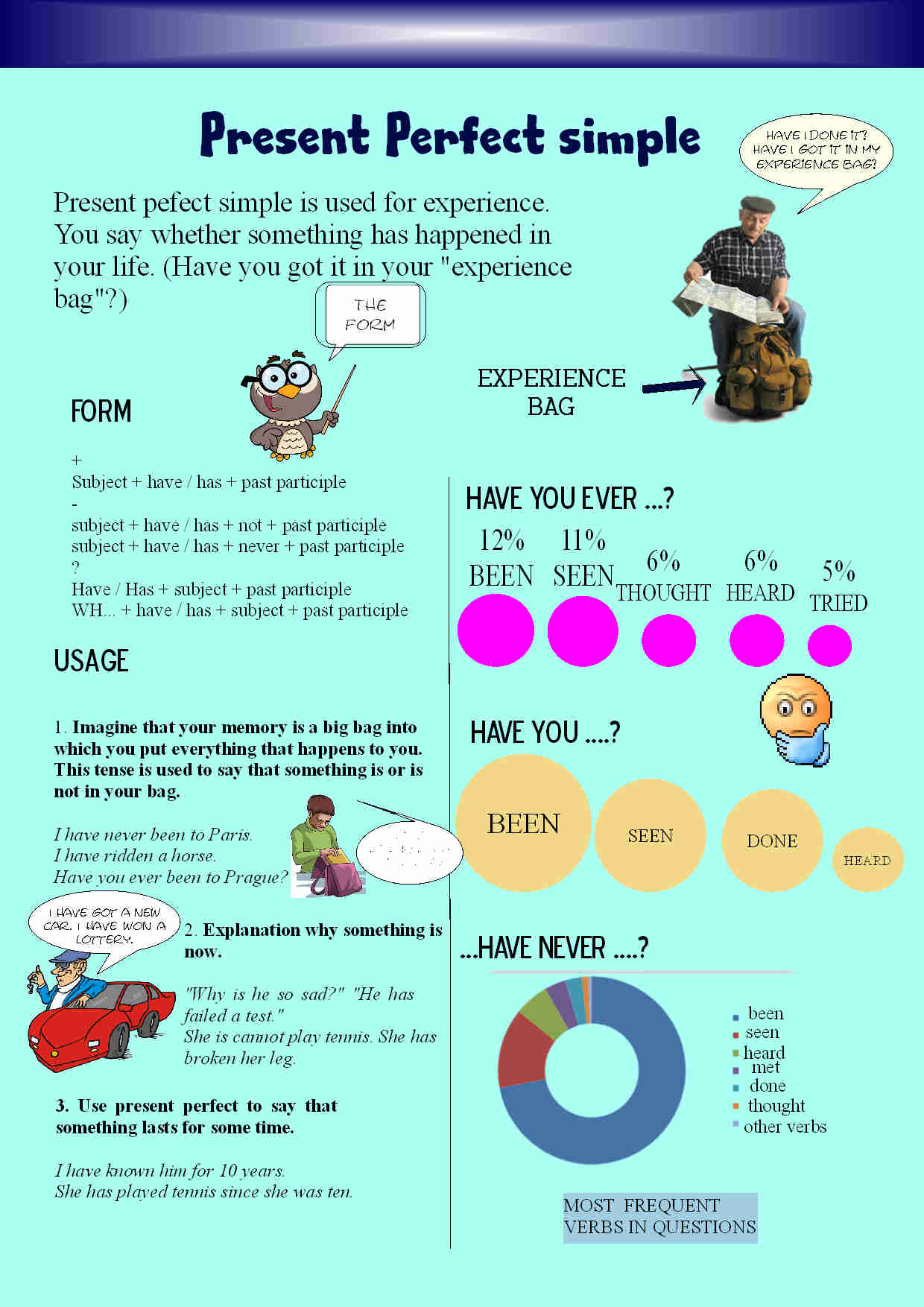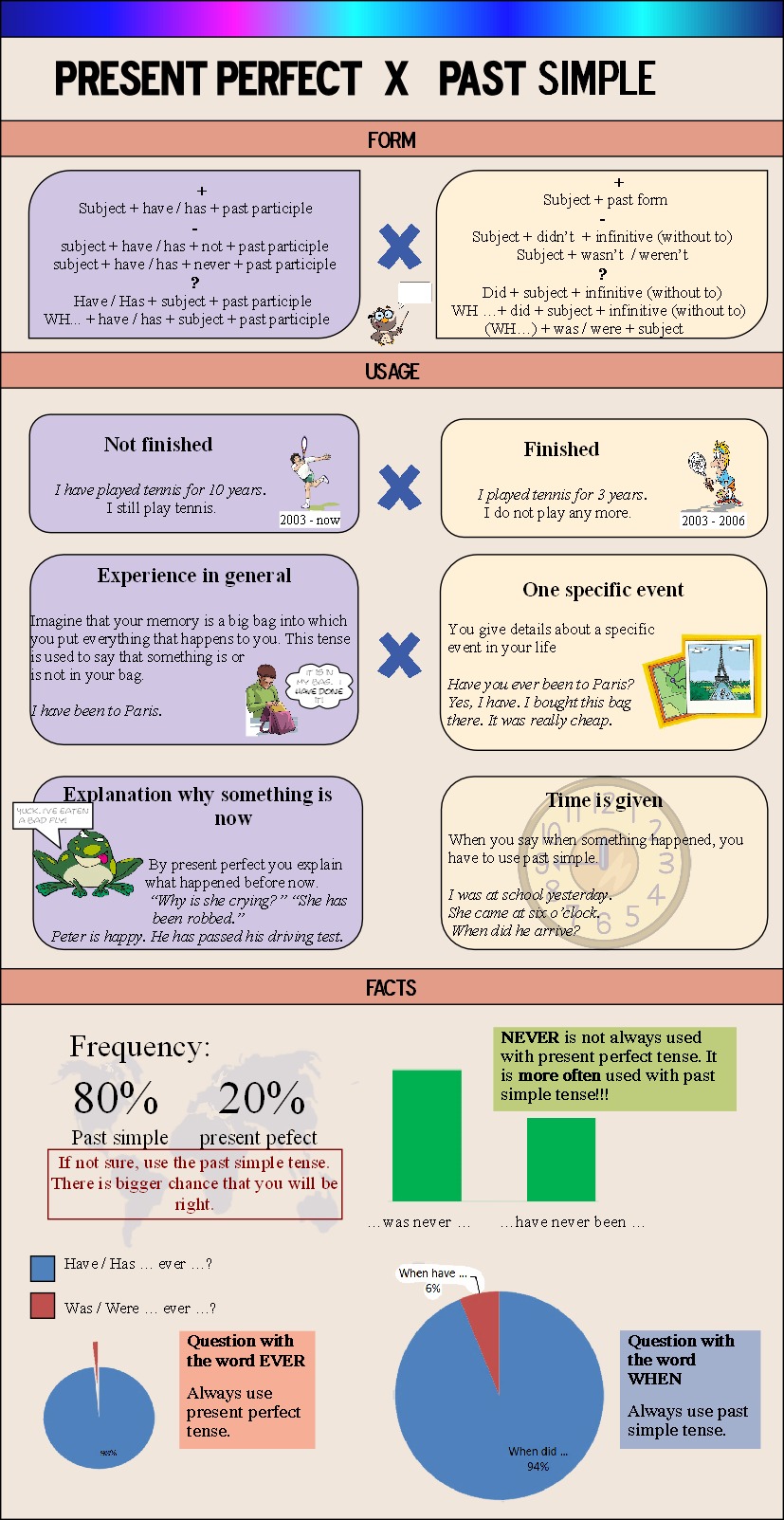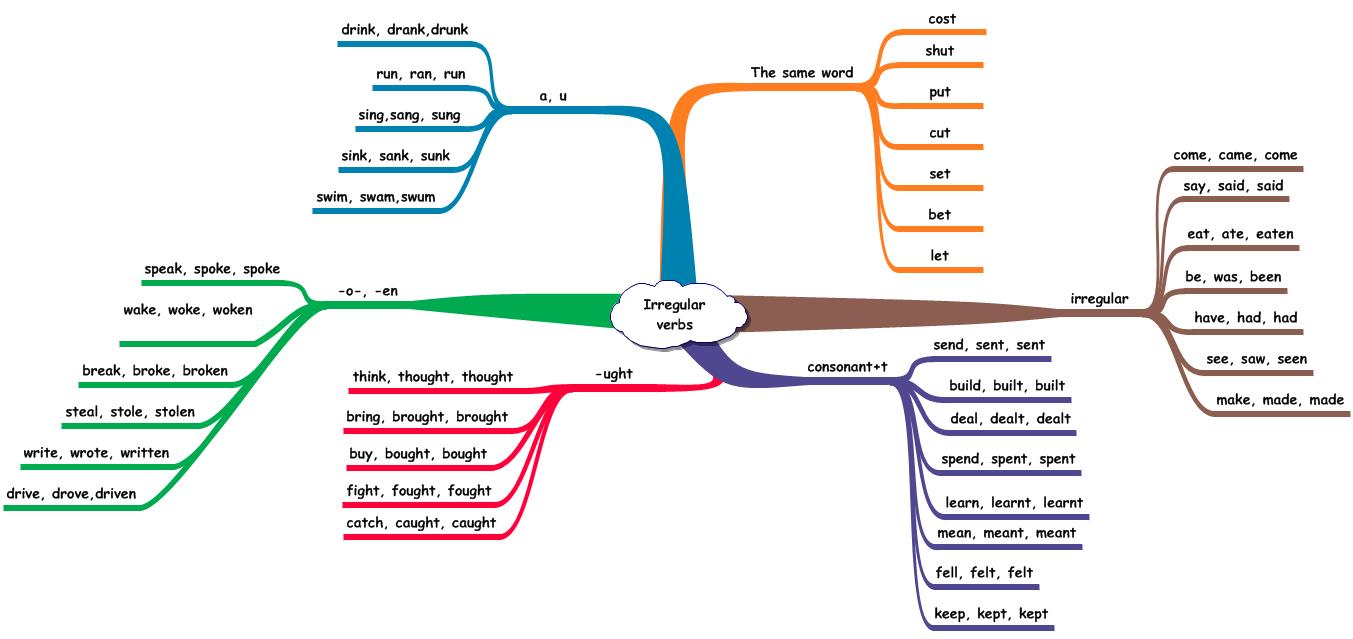Present perfect continuous
I have covered nearly all the tenses there are on my website. But it is the first time I deal with the present perfect continuous tense. It is not an easy tense, but I think it is not really difficult either. To help you teach this tense there is an infographic, a worksheet, an audio…
